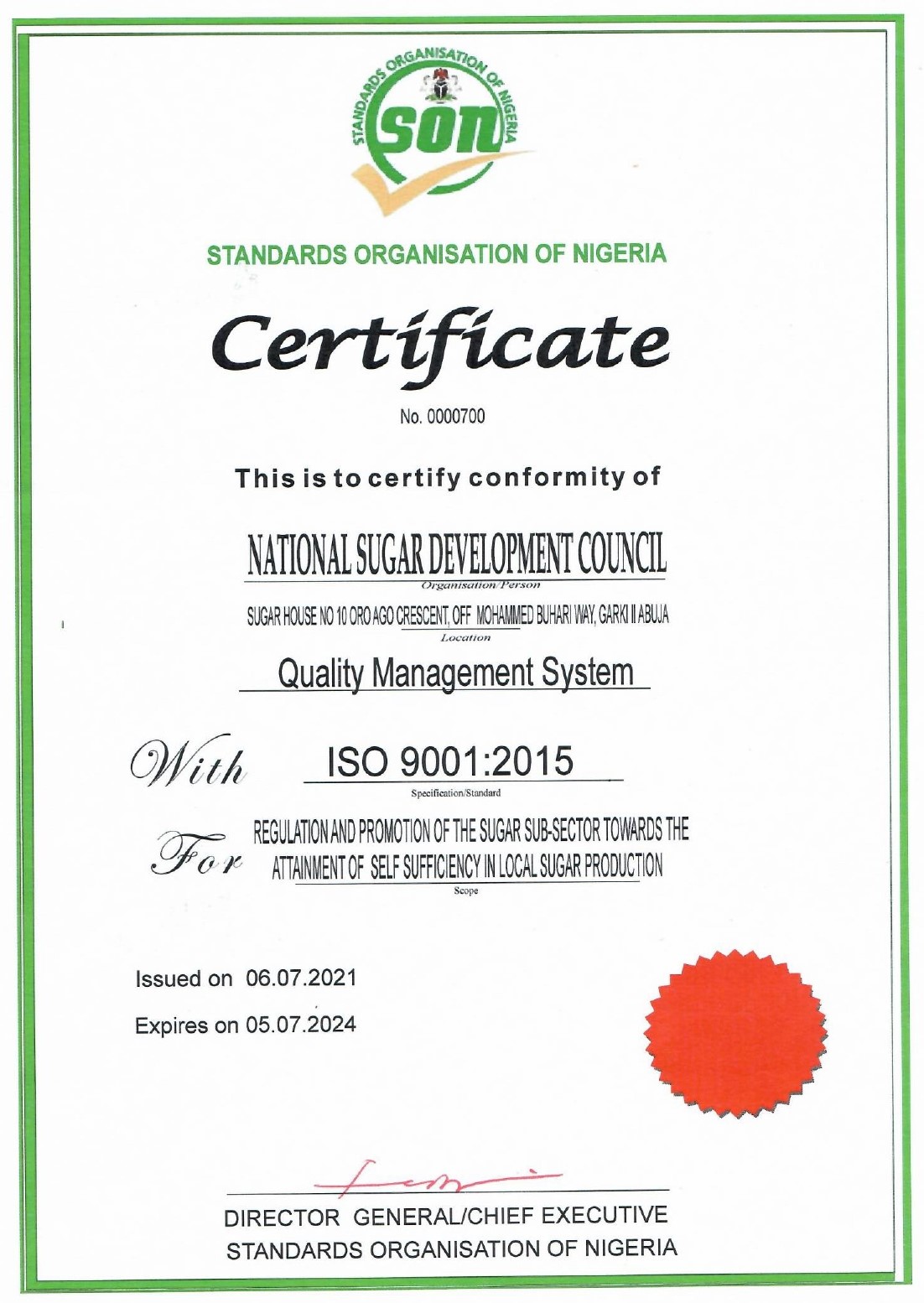The Executive Secretary/CEO of National Sugar Development Council (NSDC), Mr Kamar Bakrin, has said his vision for the sugar sector is to accelerate the attainment of the Nigeria Sugar Master Plan (NSMP) goals through strategic interventions for the second phase.
He said this when leaders of the Commerce and Industry Correspondents Association of Nigeria (CICAN) paid him a courtesy at the NSDC Headquarters on Wednesday.
“When I assumed office in October of last year, of course a key thing is to build on the work and the achievements of my predecessors, who have also worked extremely hard to get things to where they are today. So, working with the leadership team, we sort of articulated what needs to happen going forward, so that we can deliver on the mandate of this organisation and contribute our own quota to national development. So, we figured out that a critical thing for us is to accelerate the attainment of the goals of the NSMP Phase II through strategic interventions.
“NSMP is anchored on four major objectives which are: for Nigeria to attain self-sufficiency in local sugar production, stem the rising tide of sugar importation, create job opportunities through the setting up of sugar estates and refineries as well as to generate electricity and production of ethanol for industrial purposes.
“We want to increase the output of sugar locally to match domestic demand, to become a globally competitive player compared to nations like Brazil that have huge natural advantages. We also want to ensure that we become a globally competitive producer of sugar as a country, so that it will make imports a lot less attractive.
“A total of four companies signed into the Backward Integration Programme (BIP) of the NSMP. The companies are Dangote Sugar Refinery, BUA Sugar Refinery, Golden Sugar Refinery and KIA Africa Group. These BIP operators have their sites located in states across Nigeria where they are providing jobs for Nigerians and contributing and changing the economic fortunes of their host communities.
“The Dangote Sugar Refinery has its BIP sites in Numan Adamawa state and in Tunga in Nasarawa state, while the BUA Group has hers in Lafiagi, Kwara state, Golden Sugar BIP is located in Sunti, Niger state while that of KIA Africa is in Bacita, Kwara state.
“The plan has several policy measures to stimulate demand and attract private sector investment in the sugar industry. And part of the benefits of the sector is the local production of sugar.
“The key part of it is to promote backward integration, that is as much as possible the development of sugar production in Nigeria. It also provides for fiscal incentives, part of which includes things like 0% tariff on equipment and spares. NSMP also calls for assistance to investors in provision of things like feasibility studies.
As captured in the master plan, Nigeria’s annual sugar consumption of 1.8 million metric tones would be met within 10 years. A total of 250,000 hectares would be required for cane cultivation, 28 factories would be established and over 100,000 direct and indirect jobs would be created for Nigerians. A total of four companies signed into the BIP of the NSMP. These are Dangote Sugar, BUA Sugar, Golden Sugar and KIA Africa Group, which bought the Bacita sugar mill. They have jointly created 15,000 jobs and they have over 200,000 hectares of land that have been acquired for the production of sugarcane to enable them produce sugar locally.
“We have been able to onboard two new sugar investors who have showed up with about 20,000 hectares of land. We have redesigned the Backward Integration Performance Executive Framework to ensure that there is proper alignment between the objectives of the NSMP and what the actors are doing,” he said.
The CICAN Chairman, Mr Ifeanyi Onuba, congratulated the NSDC boss on his appointment, pledging the support of his members for his success.
Mr Onuba also made a couple of requests from the NSDC management including an open door policy that will ensure that interactions of this nature take place frequently.
In his vote of thanks, the Director, Executive Secretary’s Office, Mallam Ahmed M. Waziri, thanked the journalists for the support they have given to successive heads of the Council over the years, urging then to extend the same gesture to Mr Bakrin.
Other management staff who joined the ES to receive his guests were the Acting Director of Policy Planning Research and Statistics (PPRS), Mr Babangida Damare; Acting Head of Procurement, Madam Afiong Onwumeru; the Acting Head of Technical Services, Mr Bala Ladan; and the Acting Head of Human Resource Management, Madam Okida Kaka-Senchi.

